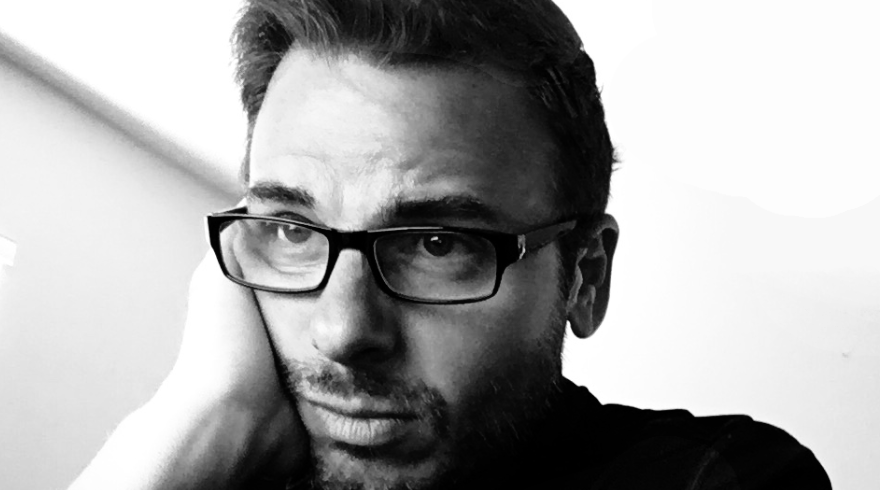Chris Conidis is a seasoned writer, filmmaker, and performer with over two decades of experience crafting engaging stories and immersive experiences. His career began at Universal Studios and Walt Disney World, where he specialized in media production, guest experiences, and show writing. These roles allowed Chris to combine his creativity and technical expertise to design narratives that resonated with diverse audiences.
Driven by his passion for storytelling, Chris founded Elios Entertainment, a media production company that produced original animations, short films, and creative projects across genres like sci-fi, horror, and comedy. In this role, he managed projects from concept to completion, showcasing his ability to bring imaginative ideas to life. His leadership and vision have been recognized with awards, including the Indie Creator Excellence Award for his graphic novel Toolmaker.
Beyond filmmaking, Chris has made a mark in live performance as an improv artist, performing at Fandumb Comedy Lab and creating dynamic sketches that blend humor with sharp observations. His published works, such as Return to Adam’s Earth and The Magician’s Code, highlight his talent for combining societal critique with engaging narratives.
Chris is also an advocate for arts education, conducting workshops on storytelling and creative expression to inspire aspiring creators. Whether leading creative projects, performing on stage, or mentoring others, Chris is dedicated to the art of impactful storytelling. His career reflects a commitment to innovation, collaboration, and connecting with audiences through memorable and meaningful experiences.
What was your life like before you got started in comedy?
Before comedy became a focus, life felt like it was missing something. I was stuck in routines that didn’t challenge or excite me creatively. I loved storytelling but didn’t know how to share my ideas in a way that resonated with people. It felt like I had a voice but no platform to use it.
What emotions were you feeling before your first forays into comedy?
Frustration, self-doubt, and a longing for something more fulfilling. I was restless, knowing I had more to offer but unsure how to channel it.
How was this affecting your life?
It left me feeling unfulfilled and disconnected from my potential. I wasn’t taking creative risks, and that lack of action made it hard to find joy in the day-to-day.
What specific strategies or practices did you implement to overcome that?
I started small—taking improv classes, writing comedy sketches, and performing at open mics. I also surrounded myself with people who challenged and supported me, joining groups like Fandumb Comedy Lab. Practice and feedback were key to building confidence.
Where did you hear about that strategy or practice?
I stumbled upon it while researching ways to improve public speaking. Improv comedy kept coming up as a tool for confidence and quick thinking, so I gave it a shot.
Please give our readers a step-by-step guide, so they can implement the strategies you used.
Take an improv or comedy class—it’s a safe space to start.
Write regularly. Even bad ideas can lead to great material.
Perform. Open mics or small shows are great for practicing.
Seek feedback from trusted peers.
Repeat the cycle—write, perform, learn, and improve.
How long did it take before you saw or felt like you were getting a solid grasp on the craft?
A few months. The first performances were rough, but with each one, I felt more confident and connected to the audience.
What challenges did you face along the way?
Rejection and self-doubt were constant. Bombing on stage is part of the process, but it stings. Balancing creativity with other responsibilities was also tough.
How did you address those challenges?
By reframing failures as lessons and keeping a sense of humor about them. I also set small, achievable goals to maintain momentum without overwhelming myself.
What is life like for you now?
Fulfilling and dynamic. Comedy is not just a career but a way to connect with people and see the world differently. I feel more confident in my creative voice.
From a broader perspective, what you have learned about yourself through this experience?
I’ve learned that growth comes from stepping outside your comfort zone. Vulnerability is a strength, and creativity thrives when you’re open to failure.
What advice would you give others in a similar situation?
Start now, even if you feel unprepared. Progress happens through action, not perfection. Be patient with yourself, and don’t take failure personally—it’s part of the journey.
If others reading this would like to connect with you to ask questions, are you open to that?
Absolutely! Comedy is all about connection, and I’d love to help others find their voice.

